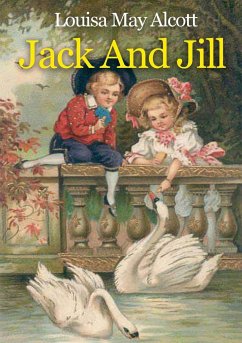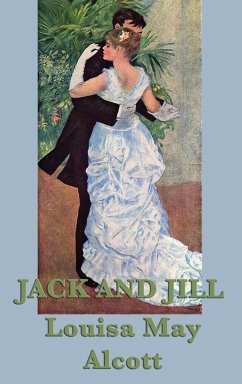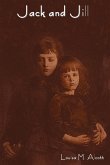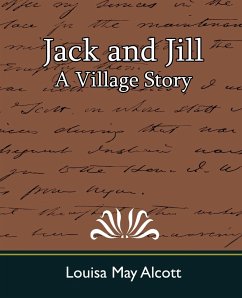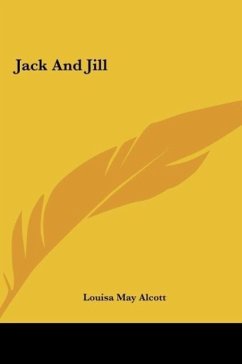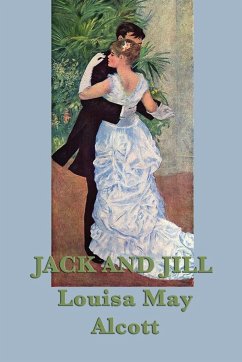Jack And JillLouisa May Alcott "Clear the lulla!" was the general cry on a bright December afternoon, when all the boys and girls of Harmony Village were out enjoying the first good snow of the season. Up and down three long coasts they went as fast as legs and sleds could carry them. One smooth path led into the meadow, and here the little folk congregated one swept across the pond, where skaters were darting about like water-bugs and the third, from the very top of the steep hill, ended abruptly at a rail fence on the high bank above the road. There was a group of lads and lasses sitting or leaning on this fence to rest after an exciting race, and, as they reposed, they amused themselves with criticising their mates, still absorbed in this most delightful of out-door sports. "Here comes Frank Minot, looking as solemn as a judge," cried one, as a tall fellow of sixteen spun by, with a set look about the mouth and a keen sparkle of the eyes, fixed on the distant goal with a do-or-die expression. "Here's Molly Loo And little Boo!" sang out another and down came a girl with flying hair, carrying a small boy behind her, so fat that his short legs stuck out from the sides, and his round face looked over her shoulder like a full moon. "There's Gus Burton doesn't he go it?" and such a very long boy whizzed by, that it looked almost as if his heels were at the top of the hill when his head was at the bottom! "Hurrah for Ed Devlin!" and a general shout greeted a sweet-faced lad, with a laugh on his lips, a fine color on his brown cheek, and a gay word for every girl he passed. "Laura and Lotty keep to the safe coast into the meadow, and Molly Loo is the only girl that dares to try this long one to the pond. I wouldn't for the world the ice can't be strong yet, though it is cold enough to freeze one's nose off," said a timid damsel, who sat hugging a post and screaming whenever a mischievous lad shook the fence. "No, she isn't here's Jack and Jill going like fury." "Clear the track For jolly Jack!" sang the boys, who had rhymes and nicknames for nearly every one. Down came a gay red sled, bearing a boy who seemed all smile and sunshine, so white were his teeth, so golden was his hair, so bright and happy his whole air. Behind him clung a little gypsy of a girl, with black eyes and hair, cheeks as red as her hood, and a face full of fun and sparkle, as she waved Jack's blue tippet like a banner with one hand, and held on with the other. "Jill goes wherever Jack does, and he lets her. He's such a good-natured chap, he can't say 'No.'"
Hinweis: Dieser Artikel kann nur an eine deutsche Lieferadresse ausgeliefert werden.
Hinweis: Dieser Artikel kann nur an eine deutsche Lieferadresse ausgeliefert werden.

